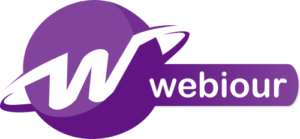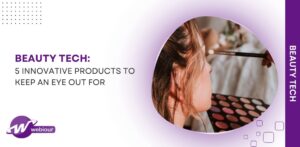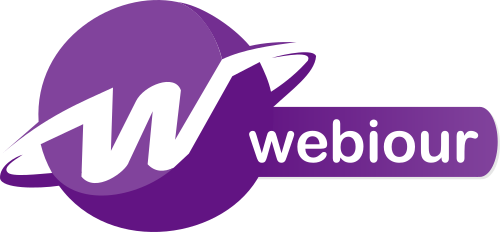Mobile health technology, also known as mHealth, refers to the use of mobile devices such as smartphones and tablets to deliver healthcare services and information. This technology has the potential to revolutionize the way we access and receive healthcare, by making it more convenient, efficient, and cost-effective. In this blog, we will explore the capabilities of mobile health technology and how it can benefit both patients and healthcare professionals. From remote monitoring and consultation to education and support, mHealth offers a wide range of possibilities for improving healthcare delivery. Whether you are a patient looking to take control of your own healthcare or a healthcare professional seeking to provide better care for your patients, this technology has something to offer.
Current Applications of Mobile Health Technology
Mobile health technology, also known as mHealth, is a rapidly growing field that utilizes mobile devices such as smartphones and tablets to improve healthcare delivery, access, and outcomes. In this blog post, we will explore the current applications of mHealth technology and discuss how it is being used to transform the healthcare industry.
Remote patient monitoring and telemedicine:
One of the most significant applications of mHealth technology is in the area of remote patient monitoring and telemedicine. This involves the use of mobile devices to remotely monitor patients’ vital signs, symptoms, and other health-related data. This data can be used to provide real-time feedback to patients and their healthcare providers, allowing for more timely and informed decision-making.
For example, a patient with a chronic illness such as diabetes or hypertension may use a wearable device to continuously monitor their blood pressure or blood glucose levels. This data is then transmitted to their healthcare provider, who can use it to adjust the patient’s treatment plan as needed.
Telemedicine, on the other hand, involves the use of videoconferencing and other digital communication tools to allow healthcare providers to remotely consult with and treat patients. This can be particularly useful in rural or underserved areas where access to healthcare is limited.
Health tracking and self-management tools:
mHealth technology can also be used by individuals to track and manage their own health. This includes a wide range of apps and devices that can help people monitor and manage their diet, physical activity, sleep patterns, and other health-related behaviors.
For example, a person with a goal to lose weight may use a fitness tracker to monitor their daily steps, calories burned, and other activity data. They can then use this information to adjust their diet and exercise habits to help them reach their weight loss goals.
Medical reference and decision support tools:
Mobile health technology can also be used to provide medical professionals with access to up-to-date reference materials and decision support tools. For example, a healthcare provider may use a mobile app to quickly and easily access guidelines for the treatment of a particular condition, or to check for potential drug interactions.
Electronic health records and personal health records:
Finally, mHealth technology is being used to facilitate the creation and management of electronic health records (EHRs) and personal health records (PHRs). EHRs are digital versions of a patient’s medical history, including their diagnoses, medications, and treatment plans. PHRs are similar, but are owned and controlled by the patient themselves.
By using mHealth technology to create and maintain EHRs and PHRs, healthcare providers can more easily access and share important patient information, leading to improved care coordination and outcomes.
In conclusion, mHealth technology has the potential to revolutionize the way healthcare is delivered, accessed, and managed. From remote patient monitoring and telemedicine to health tracking and self-management tools, the applications of mHealth technology are numerous and varied. As the field continues to evolve, it will be interesting to see how it will shape the future of healthcare.
Challenges and Limitations
As with any new technology, the adoption and use of mHealth also comes with a number of challenges and limitations that need to be addressed.
One major concern is the issue of privacy and data security. As more and more health-related data is collected and stored on mobile devices and in the cloud, there is a risk that this data could be accessed by unauthorized individuals. It is therefore important that robust security measures are put in place to protect patients’ personal and medical information.
Another challenge is the need for interoperability between different mHealth technology systems. In order for mHealth to truly transform healthcare, it is essential that different systems are able to communicate and share data with one another. This includes devices and apps from different manufacturers, as well as EHRs and other healthcare information systems.
Finally, there is the potential for mHealth technology to perpetuate healthcare disparities, particularly for underserved populations. For example, individuals who do not have access to smartphones or other mobile devices may be unable to benefit from mHealth technologies. It is therefore important to ensure that mHealth solutions are developed and implemented in a way that is accessible and equitable for all.
The Future of Mobile Health Technology
As mHealth technology continues to evolve and mature, it is likely that it will play an increasingly significant role in the healthcare industry. Some predictions for the future of mHealth include:
- Continued growth and expansion: It is expected that the use of mHealth technology will continue to grow and expand, as more people adopt mobile devices and as healthcare providers increasingly embrace digital solutions.
- Increased integration with other technologies: It is likely that mHealth will become increasingly integrated with other technologies such as artificial intelligence, the Internet of Things, and virtual reality. This could lead to the development of even more sophisticated and personalized healthcare solutions.
- Greater focus on preventive care: As mHealth technology becomes more widely adopted, it is expected that there will be a greater focus on preventive care and population health management. This could involve the use of mHealth tools to monitor and track the health of entire populations, with the goal of identifying and addressing potential health issues before they become more serious.
- The emergence of new business models: The growth of mHealth is also expected to lead to the emergence of new business models, as healthcare providers and technology companies seek to capitalize on the potential of digital health.
The future of mHealth is exciting and full of potential, but it is important that this technology is developed and used responsibly. This means taking steps to ensure the privacy and security of patients’ personal and medical data, and working to ensure that mHealth solutions are accessible and equitable for all. By prioritizing responsible innovation, we can help to ensure that mHealth technology has a positive and lasting impact on the healthcare industry.
Conclusion
In conclusion, mobile health technology has the potential to significantly improve patient outcomes and increase access to healthcare. From remote patient monitoring and telemedicine to health tracking and self-management tools, mHealth offers a wide range of applications that can help to transform the way healthcare is delivered and accessed.
However, it is important to approach mHealth with caution and consideration for its potential impacts. This means taking steps to ensure the privacy and security of patients’ personal and medical data, and working to ensure that mHealth solutions are accessible and equitable for all. By prioritizing responsible innovation, we can help to ensure that mHealth technology has a positive and lasting impact on the healthcare industry.







